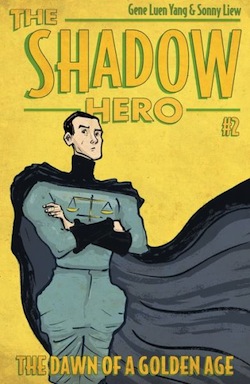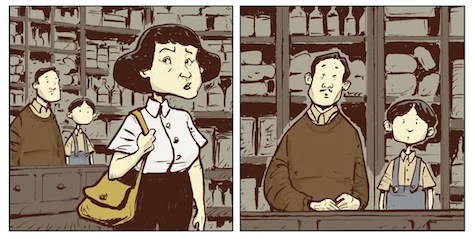A few days before I headed off to college, my dad sat me down for a talk. It wasn’t that talk, which we’d had a few years before. That talk was incredibly awkward, involving metaphors about shooting guns and comparisons between human genitalia and broccoli. My dad gave me that talk in Chinese, and it was one of the few times in my life when I was grateful my Chinese language skills weren’t up to par.
The talk we had before college concerned something even more important than the birds and the bees, at least in the eyes of a first-generation immigrant like my father. He wanted to talk to me about my choice of major. He told me in his most solemn voice, “You must choose a major that is practical.”
He didn’t have to spell out what qualified as “practical.” The knowledge had surrounded me throughout my childhood, lingering in between the words of every conversation my parents had about my future. What it came down to was this: In four years, my dad was going to attend the graduation ceremony held in the Science building of my university. He hoped that I would be there too.
But our talk wasn’t all stick—he added a carrot. “Choose a practical major and you can do whatever you want after college. I won’t say a word about your life choices,” he promised.
So I majored in Computer Science. And to be honest, my choice wasn’t entirely driven by a desire to please my dad. I’d developed a genuine love for code after learning to program on my family’s old Apple IIe. But my dad was definitely a factor.
After graduating, I took a job as a programmer for a small software company. True to his promise, my dad didn’t say a word about my life choices.
Two years later, I quit my programming job to teach high school computer science and make comic books on the side. When I told my dad, he still didn’t say a word, but I could tell from progression of reddish hues flashing across his face that it wasn’t easy.
Then, every two or three months, he would send me an envelope full of newspaper clippings. The clippings were usually job listings from Google or Microsoft or Apple. Sometimes there’d be an article comparing a teacher’s salary to a computer programmer’s.
 This went on for years. When my graphic novel American Born Chinese was published in 2006, a Chinese newspaper did a feature on me and my book. I visited my dad shortly after. He showed me the article, neatly clipped and carefully preserved in a plastic sleeve. He stopped sending me the envelopes.
This went on for years. When my graphic novel American Born Chinese was published in 2006, a Chinese newspaper did a feature on me and my book. I visited my dad shortly after. He showed me the article, neatly clipped and carefully preserved in a plastic sleeve. He stopped sending me the envelopes.
These days when aspiring cartoonists ask me for advice, I tell them to find a day job that they enjoy, one with flexible hours, one that will leave them with enough energy to do their own projects on the side. For most of us it takes years, even decades, for our art to begin making money. Art is a long haul, and you need to eat.
Recently I realized, much to my chagrin, that I’m basically giving an Americanized version of my father’s talk. After all, a “practical” major is one that gives you a better shot at a regular paycheck with flexible hours. A “practical” major equips you for the long haul.
We all must find balance between our parents’ practicality and our own aspirations, but for those of us who are immigrants’ kids this quest has a special resonance. We carry our parents’ aspirations within us.
Next Tuesday, First Second Books releases the second issue of The Shadow Hero, my miniseries with Sonny Liew. Sonny and I tell the origin story of the first Asian American superhero, a costumed crusader named the Green Turtle with roots in the comics of the 1940s. Hank Chu, our teenage protagonist, is the child of immigrants, and like many immigrants’ kids, he must find balance between his own desires and his mother’s. But of course, since this is the superhero genre, Hank must do so while fending off toxic chemical spills, radioactive dogs, and occultists. We hope you enjoy the story!
Gene Luen Yang’s first book with First Second, American Born Chinese, is now in print in over ten languages and was a National Book Award finalist and winner of the Printz Award. Yang’s other works include the popular comics adaptation of Avatar: The Last Airbender, and the New York Times Best-Selling graphic novel diptych Boxers & Saints. The Shadow Hero, the story of the first Asian-American superhero is his most recent graphic novel. It is being published in six e-issues, starting in February, 2014; the second will be available on March 18th.










